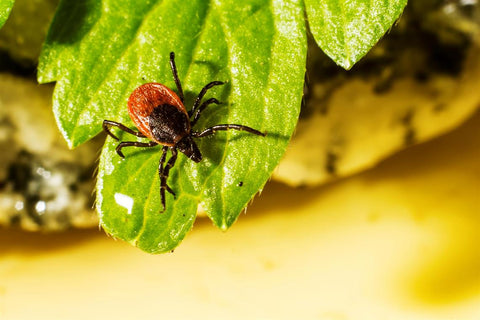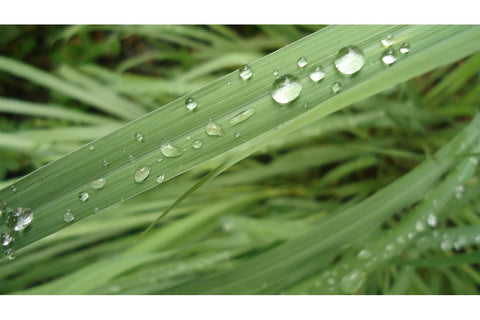Whilst incognito® insect repellent is well known at providing protection against mosquitoes, this is not the only biting and stinging insect it provides protection against, it also provides protection against ticks.
What Is A Tick?
Typically 3 to 5 millimetres in length, ticks are arachnids that feed on the blood of various different creatures, mostly the blood of mammals and birds; however they do sometimes feed off reptiles and amphibians. There are over 800 species of ticks throughout the world, which can be broken down into two categories, hard ticks and soft ticks. Hard ticks have a scutum, or hard plate, on their back while soft ticks do not.
Typically speaking, ticks live in grassy and wooded areas around the world, however ticks infected with the bacteria that cause Lyme Disease have been found in city parks in Europe and North America. So regardless of your destination, home or abroad; make sure that you consider the risks of ticks before you pack your bags. With regards to ticks here at home in the United Kingdom, there are over 20 different species of tick, however the most likely species of tick in the UK to bite humans is the Sheep Tick (Ixodes ricinus), although whilst the Sheep Tick is the most likely to bite humans, please remember that other ticks can still also bite and feed off humans, in fact the Hedgehog Tick (Ixodes hexagonus) is also reported to bite humans.
What Diseases Can Be Spread By Ticks?
Diseases spread by Ticks (known as tickborne diseases) occur worldwide, disease transmission usually occurs near the end of a meal, as the tick becomes full of blood. As hard and soft ticks have different feeding patterns, the transmission time is different for both types. With regards to hard ticks, it may take hours before the tick transmits pathogens. However, on the other hand soft ticks usually feed for less than one hour, which means that disease transmission can occur in less than a minute.
Unfortunately for the purpose of detection, the tick bite is usually painless and remains that way even after the tick stops feeding and falls off of the skin. As such, it’s very important to use insect repellent as you may be bitten by a tick and be unaware that you’re being fed on. Here are a few of the tick-borne diseases you may encounter whilst in the United Kingdom, or whilst travelling.
-
Lyme Disease
According to the NHS, Lyme disease is a bacterial infection that can be spread to humans by infected ticks. It's usually easier to treat if it's diagnosed early.
Many people with early symptoms of Lyme disease develop a circular red skin rash around a tick bite. Most rashes appear within the first 4 weeks and usually lasts for several weeks. However, this rash can appear up to 3 months after being bitten by a tick. The rash is circular in nature and is often described as having a similar appearance to a bulls-eye on a dartboard or target board.
Ticks become infected when they feed on deer, birds, or rodents; the disease exists in North America, Europe, and parts of Asia. Early treatment with antibiotics is important as Lyme disease can become a chronic and debilitating illness if left untreated. However, not everyone infected with the disease will have the well-known rash; other symptoms include fever and swollen lymph nodes. This combined with the usual painless nature of a tick bite presents a clear need for reliable insect repellent. -
Tick-Borne Spotted Fever
this is a catch-all term used to describe illnesses caused by ticks infected with Rickettsia bacteria. The Rickettsia bacteria are present worldwide and after a bite by an infected tick, a red rash can develop and black tissue, known as an “eschar”, forms at the site of the tick bite. Typically speaking infections range from mild to severe and are treated with antibiotics.
One type of Tick-Borne Spotted Fever which is known as Rocky Mountain Spotted Fever can be transmitted by ticks in North, Central, and South America. It’s not just localised to the Rocky Mountains region. This type of spotted fever can be fatal if untreated. There is no preventive medication or vaccine against rickettsial infections, further demonstrating the importance of high quality insect repellent. -
Tick-Borne Encephalitis
This viral infection is known to cause fever, fatigue, muscle pain, nausea, and many other symptoms. In fact about 1/3 of all people infected develop serious symptoms like meningitis (where the virus attacks the lining that surrounds the brain and the spinal cord) or encephalitis (swelling of the brain). However, thankfully, there is a vaccine against tick-borne encephalitis. The Vaccine is recommended for those travelling to a large list of countries, including nations such as China, France, Norway, Switzerland, and Russia. [iamat.org].
How Do You Protect Yourself Against Ticks?
Ticks can transmit some serious and dangerous diseases and illnesses; as such it is very important that you protect yourself against ticks. The best ways to avoid tick bites are to: use insect repellent on exposed skin; wear protective clothing with long sleeves and long trousers tucked into socks or boots; and treat socks and trouser legs with permethrin-containing insecticide or spray over clothing with insect repellent. However, please remember to always patch test to ensure clothing is not marked.
Ticks prefer warm and moist areas, armpits, groin or scalp, ensuring a thicker layer of repellent is used on these areas, a roll on would be a better solution for underarms etc, for the hair wash with the hair and body wash, you can also spray with the insect repellent before going out.
Insect Repellent From Less Mosquito, For More Information Speak To Our Team Of Experts
Please feel free to browse around our product range to find the best insect repellent for you. Our mission is to provide our customers with a 100% natural, best insect repellent that is as effective as what available synthetic alternatives are.
If you have any further questions to ask about anything you may see on our website, or just want more information on how best to avoid insect bites, our sales team are on hand to help. Give them a call on 020 792 8687 or send any e-mail enquiries to info@lessmosquito.com.



Comments (0)
There are no comments for this article. Be the first one to leave a message!